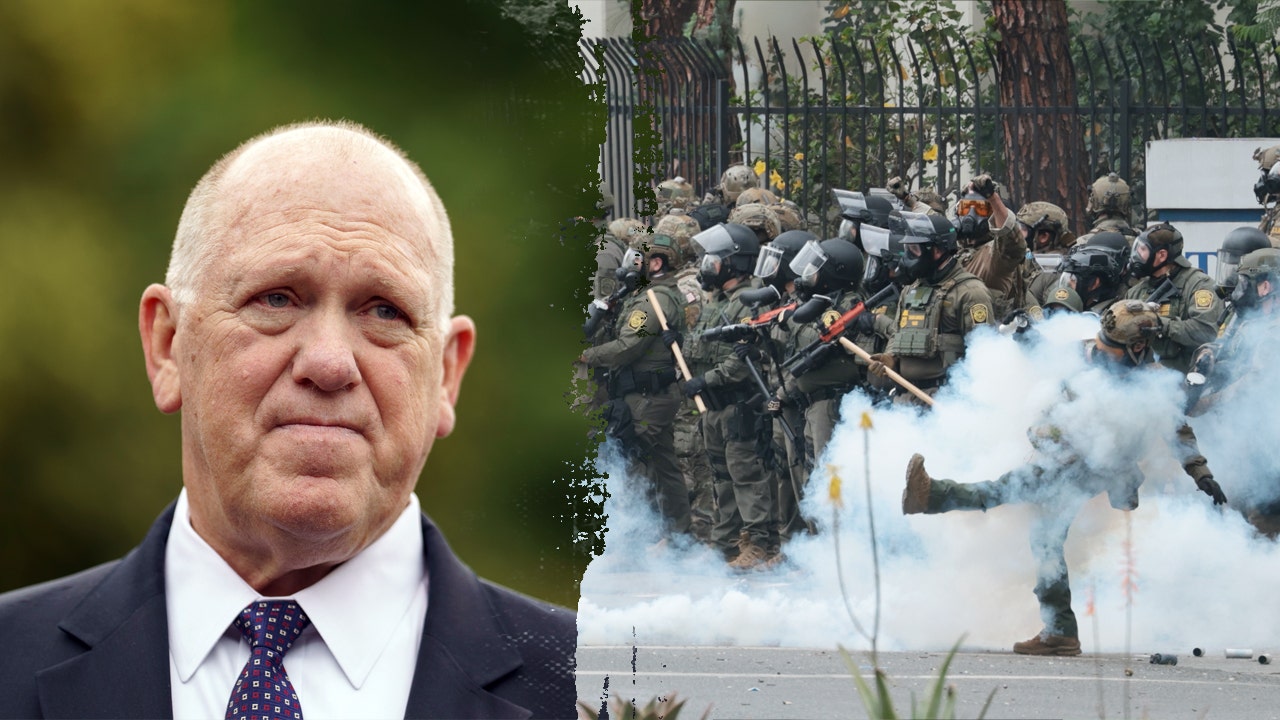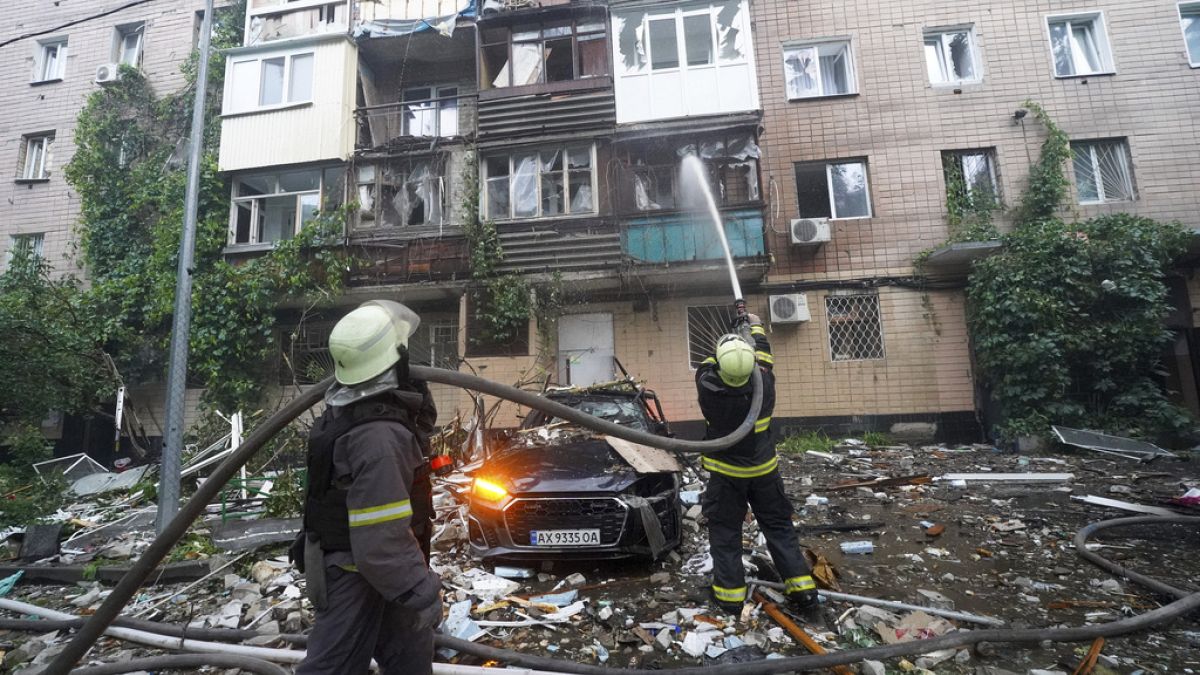Health
Cancer after 9/11: New Jersey man beats multiple myeloma years after attack, vows he’ll ‘fight to live’
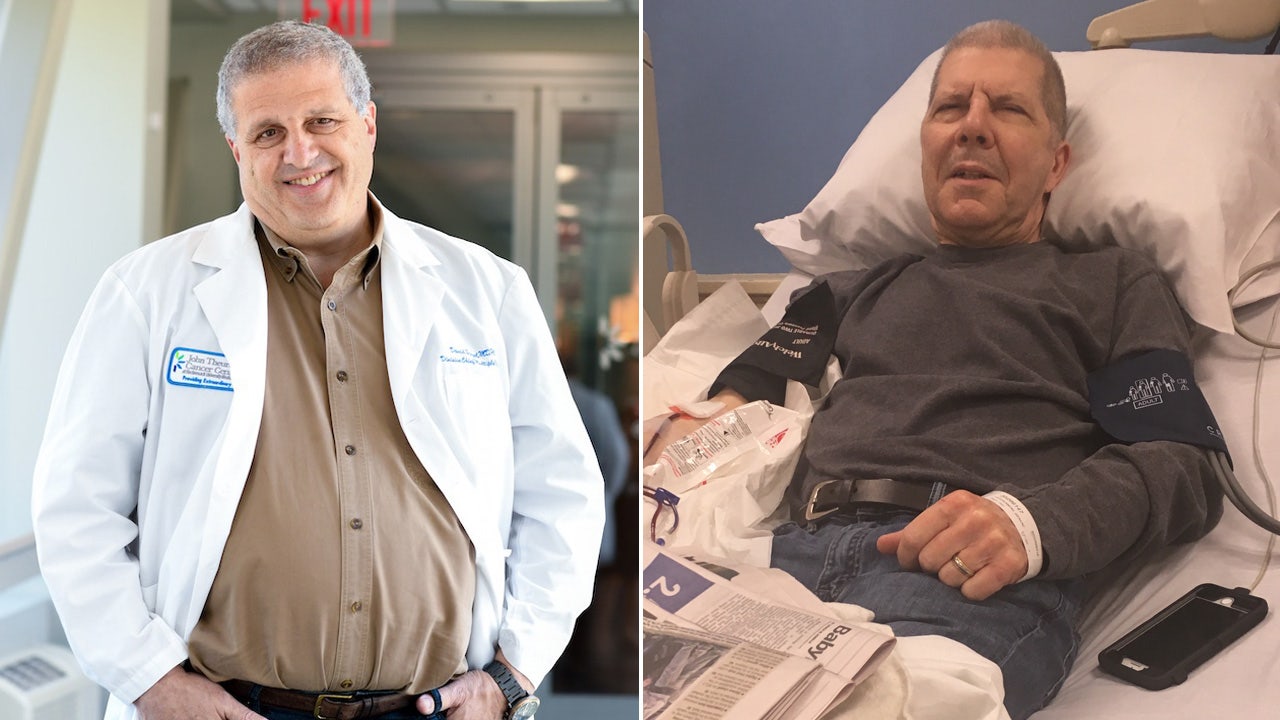
Nearly 3,000 people died in the terrorist attacks on Sept. 11, 2001 — and 22 years later, that number continues to rise due to related cancer deaths.
As of 2022, approximately 4,343 survivors and first responders died from toxic exposure, far exceeding the number that lost their lives on the day of the attacks, according to the World Trade Center Health Program.
But many patients and doctors continue to fight these cancers daily, including at Hackensack Meridian’s John Theurer Cancer Center in New Jersey.
AHEAD OF SEPT. 11, 2023, WASHINGTON PASTOR URGES, ‘REMEMBER OUR LOVED ONES’ AND ‘FIND PEACE AND PURPOSE’
One of these is Gerard Vanderberg, who was diagnosed with multiple myeloma, a cancer of the blood plasma cells, in August 2010.
He’s been treated at Hackensack Meridian since his diagnosis.
Gerard Vanderberg (right) was diagnosed with multiple myeloma, a cancer of the blood plasma cells, in August 2010. He has been treated at Hackensack Meridian by Dr. David Siegel (left) since his diagnosis. (Dr. David Siegel/Gerard Vanderberg)
Vanderberg was a healthy 47-year-old working as a bond trader in a building directly across the street from the Twin Towers at the time of the 9/11 attacks.
He recalls the large amount of “white dust” that covered every surface when he returned to the office to gather his belongings a few days after 9/11.
“The white stuff was all over the place — in my computer, on my desk, in my books,” Vanderberg told Fox News Digital in an interview.
“It wasn’t until later that I realized it was asbestos.”
AS 9/11 NEARS, EMBRACE GRIEF TO HONOR LOVED ONES, EXPERTS SUGGEST: ‘GRIEF CONNECTS US WITH ALL OF HUMANITY’
Vanderberg considered himself lucky to be alive after the attack. It would be nine years before he started noticing some unusual symptoms.
“I was in great shape at the time — very athletic, never got sick — but suddenly there were some things going on in my body,” he said.

Gerard Vanderberg is pictured in recovery after his first stem cell transplant at Hackensack Meridian in New Jersey. (Gerard Vanderberg)
He started getting pain in his side and his knees in 2009, which at first he chalked up to soreness from playing basketball. Next, he developed a plasmacytoma, a tumor of plasma cells, outside his right lung.
The following August, Vanderberg’s doctor ordered some blood work, which led to the diagnosis of multiple myeloma, a cancer of the plasma cells.
“Right away, I decided, ‘I’m gonna fight this as much as I can,’” he said.
“There has been a significant increase in the risk of myeloma among people who worked in the World Trade Center, as well as first responders and construction workers.”
Led by his oncologist, Dr. David Siegel, Vanderberg underwent an aggressive treatment journey that included many rounds of chemotherapy, radiation and stem cell treatments.
Multiple myeloma is the cancer that saw the largest uptick due to exposure at Ground Zero, according to Siegel.
“There has been a significant increase in the risk of myeloma among people who worked in the World Trade Center, as well as first responders and construction workers who returned to the area after the attack,” Siegel told Fox News Digital in an interview.
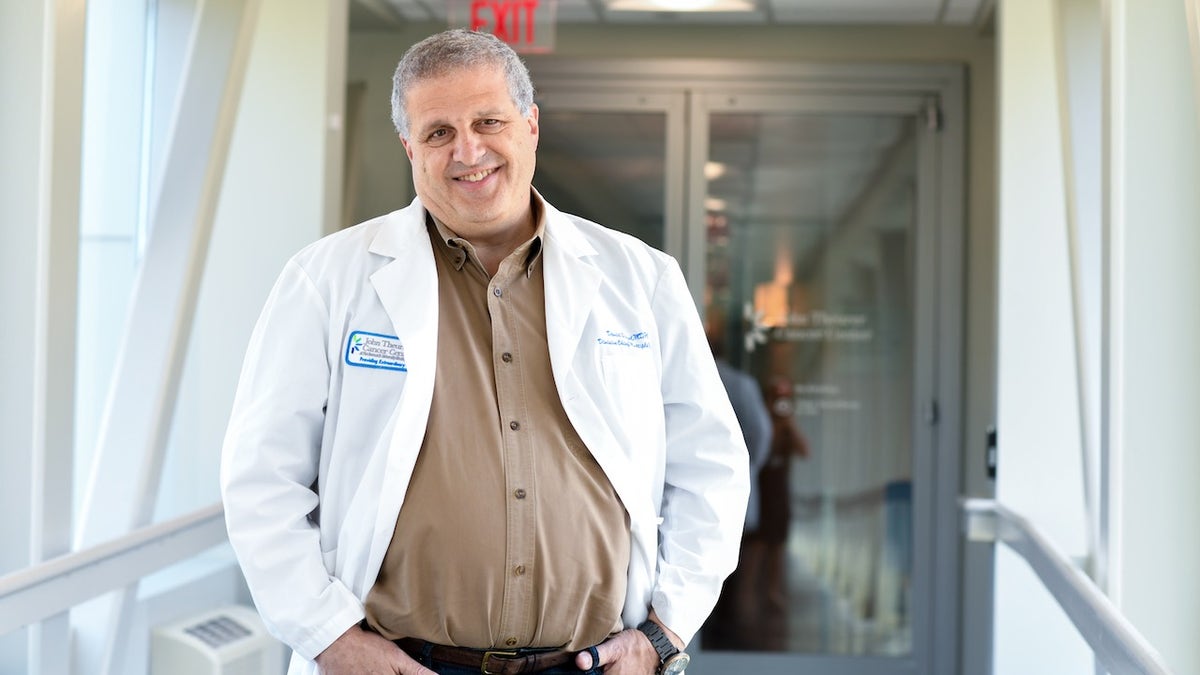
Dr. David Siegel of Hackensack Meridian in New Jersey is pictured here. There’s been a significant increase in the risk of myeloma among people who worked in the World Trade Center, he noted. (Hackensack Meridian John Theurer Cancer Center )
The collapse of the World Trade Center sent many toxic carcinogens into the air, including asbestos, silica, heavy metals and combustion products, according to a study published in the Journal of the National Cancer Institute.
“I suspect that the people at the World Trade Center inhaled materials that got into their lungs,” Siegel said.
TOXIC CHEMICAL POISONING: HAVE YOU BEEN AFFECTED? HOW TO KNOW
“It didn’t necessarily cause an injury in the lungs that turned into a cancer, although that could happen as well — but these materials got encapsulated in the immune cells, and the immune system just couldn’t rid itself of this chronic exposure.”
Chronic stimulation of the immune system increases the risk of getting blood cancers, Siegel noted, particularly multiple myeloma and lymphomas.

Gerard Vanderberg (left) is pictured with his son Joseph after his graduation from Army Ranger School in December 2022. (Gerard Vanderberg)
Because melanomas take a long time to develop, it can be years or even decades before a survivor receives a diagnosis, the doctor said.
In the years after 9/11, Siegel began to notice a cluster of cancer cases in the area, particularly among patients who were younger than the typical age of myeloma diagnosis.
“With myeloma, the median age of diagnosis is about 70 … The median age for the World Trade Center-exposed patients was significantly younger than that.”
“With myeloma, the median age of diagnosis is about 70, and the median age for the World Trade Center-exposed patients was significantly younger than that,” he told Fox News Digital.
“While I can’t say that the World Trade Center was responsible for every myeloma diagnosis that occurred in each exposed person, I can say that people who are exposed to the World Trade Center are statistically more likely to get myeloma,” Siegel added.
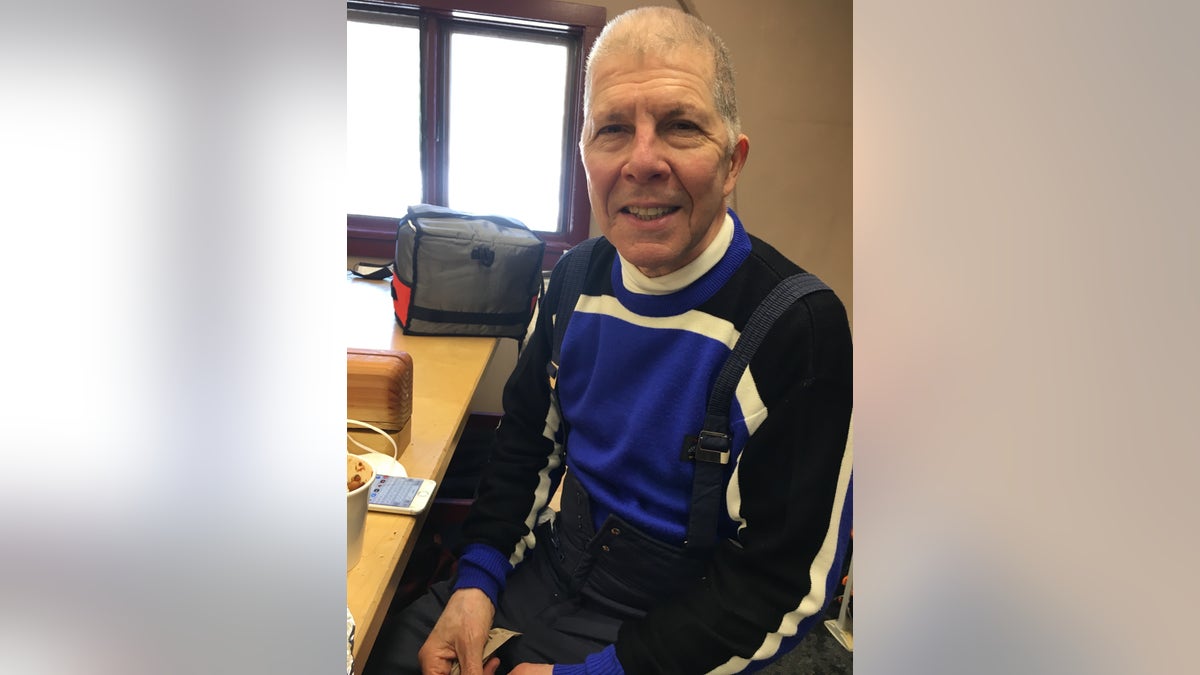
Vanderberg said he is “feeling good.” He enjoys skiing, golf and yoga. (Gerard Vanderberg)
Myeloma is an “extraordinarily rare cancer,” the doctor said — and almost every patient he treated from the World Trade Center was exposed to asbestos.
Dr. Marc Siegel, clinical professor of medicine at NYU Langone Medical Center and a Fox News medical contributor, agreed that there is an established link between World Trade Center exposure and various blood cancers, including leukemia and lymphoma, as well as lung cancer.
“Ash, debris and harmful particles, including asbestos, silica, metals, concrete and glass” were all potential carcinogens, he said.
‘MAJOR STEP FORWARD’ FOR ADULT PATIENTS AS NEW BLOOD CANCER DRUG RECEIVES FDA APPROVAL
“Fires contributed continued exposure to toxic gases, smoke, vapors and combustion by-products,” the doctor added.
There were other non-cancerous health effects as well, Dr. Marc Siegel added, including esophageal problems, various lung issues collectively referred to as “World Trade Center lung,” and mental health issues like PTSD.

Gerard Vanderberg is pictured with his daughter Caitlin (far left) and his wife Silvana at a fundraiser gala in April 2023. (Gerard Vanderberg )
Today, Vanderberg is officially in remission for his myeloma and said he is “doing fine” — although he does experience a great deal of sadness for those who didn’t survive, including many of his friends, he said.
“9/11 will always be a sad day in my life, a very emotional day,” he said.
“I had a little bit of the guilt at first,” he said. “I didn’t apply for the Victims Compensation fund right away, because I felt like, well, I’m alive and they’re dead.”
CLICK HERE TO SIGN UP FOR OUR HEALTH NEWSLETTER
Ultimately, Vanderberg is grateful that the World Trade Center Health Program has paid for all the medical expenses that were not covered by insurance.
“If it weren’t for that program, I would have had to sell my home, and it would have been a much more difficult route,” he said.
Vanderberg still has to deal with scleroderma, which is a hardening and tightening of the skin and connective tissues, but he said that overall, he is grateful for being able to do what he loves.

Gerard Vanderberg is pictured with his family at his son’s graduation from Army Officer Candidate School in 2021. (Gerard Vanderberg)
When he spoke to Fox News Digital, Vanderberg was in Montana, exploring Big Sky and Yellowstone National Park with his wife.
Two weeks ago, he was able to see his son get married. He still golfs and does yoga multiple times each week.
“I am going to fight to live,” Vanderberg said. “I could have given up, but that’s just not who I am.”
He added, “I have no complaints — I’m just happy to be here.”

Health
Former MLB pitcher finds liver donor in high-school classmate he hadn't seen in 20 years

NEWYou can now listen to Fox News articles!
A man’s Facebook plea for a liver donor attracted the attention of a high-school acquaintance he hadn’t spoken to in 20 years.
In April 2024, after experiencing appetite loss and losing 15 pounds in a month, Steven Register, 42, was diagnosed with stage 4 colon cancer, according to news agency SWNS.
Doctors told the former MLB pitcher — who played for the Colorado Rockies in 2008 and the Philadelphia Phillies in 2009 — that a liver transplant was likely his best chance of survival.
MAN WITH STAGE 4 CANCER RAISES $150K FOR EXPERIMENTAL TREATMENT
“When we first met with the doctors, they gave me a year to a year-and-a-half to live,” Register said, adding that he and his wife, Beth, immediately started researching options.
The couple traveled from Auburn, Alabama, to the MD Anderson Cancer Center in Houston, Texas, where Register underwent surgery for a temporary ostomy bag and began chemotherapy, per the SWNS report.
“When we first met with the doctors, they gave me a year to a year-and-a-half to live,” said Steven Register, shown above with his wife, Beth. (SWNS)
Plans for the liver resection were canceled when doctors discovered the tumors were too large, which led the couple to consider a transplant.
Register’s wife created a Facebook group to search for a living liver donor, hoping someone would come forward in time.
An unexpected volunteer
Kristin Johnston, a 40-year-old preschool teacher from Roswell, Georgia, saw the post and recognized Register as a former high-school classmate.
The two had met in 1999 at Shaw High School in Columbus, Georgia, but hadn’t spoken in over two decades.
ALCOHOL-RELATED LIVER TRANSPLANTS ON THE RISE AMONG YOUNG ADULTS, DOCTOR SAYS
“It was just so far out of left field,” said Register, who couldn’t believe it when Johnston volunteered to donate part of her liver.
He added to SWNS, “I haven’t seen or talked to her in over 20 years, and for her to reach out like that, it was just meant to be.”

Kristin Johnston, a 40-year-old preschool teacher from Roswell, Georgia, shown above, saw Register’s Facebook post and recognized him as a former high-school classmate. (SWNS)
Johnston said she started by doing a quick online search for live liver donation and discovered that blood type compatibility was the first step.
“I just sent him a message,” she said. “I said, ‘Hey, what’s your blood type?’ and he said, ‘I’m B positive.’”
She responded, “Wait, that’s mine, too,” and offered, “I’ll happily donate a lobe if I’m a match.”
HIV-POSITIVE TRANSPLANTS NOW PERMITTED FOR LIVERS AND KIDNEYS
Johnston was later cleared as a match and received the confirmation on a meaningful day.
“I got the news on Good Friday, of all days, that I was officially cleared as his liver donor,” she said.
Surgery and second chances
The surgery, which is expected to take 12 to 14 hours, will involve removing 70% of Johnston’s liver and transplanting it into Register, according to SWNS.
Both her remaining liver and the donated portion will regenerate over time, giving both a second chance at health.
“I got the news on Good Friday, of all days.”
“For her, she is ultimately giving him the gift of life — for him, a really fresh start in this journey,” said Beth Register.
CLICK HERE TO SIGN UP FOR OUR HEALTH NEWSLETTER
Steven Register said he hoped that “once I get my liver with all the tumor and cancer out, I’ll be cancer-free from there.”
The Register family — including children McKenzie (16), Blakely (14) and Brooks (8) — launched a fundraiser on SupportNow to help with travel, food and medical expenses.
For more Health articles, visit www.foxnews.com/health
Johnston and her husband Cody, 38, a real estate developer, have three kids of their own — Sawyer (9), Teddy (7) and Dahlia (4).
Raising awareness and faith
Beth Register said she hopes their family’s story raises awareness about the impact of living organ donation.
“A lot of people don’t realize that live donations, whether it be for livers or kidneys, are even an option,” she said.

The Register family — Steven, Beth and their three children, McKenzie (middle-left), Blakely (middle-right) and Brooks (front, center) — launched a fundraiser on SupportNow to help with travel, food and medical expenses. (SWNS)
She added that Johnston had been selfless from the start.
The families believe fate had a hand in reconnecting them, per SWNS.
“We just pray that God is opening all the right doors and that Kristin is the perfect donor for him.”
“We just pray that God is opening all the right doors and that Kristin is the perfect donor for him,” Beth Register said.
“We just appreciate her being willing to put her life on pause to hopefully lengthen his life by many, many, many years.”
Health
Meghan Trainor Swaps Lyrics After Weight Loss + Opens up About Mounjaro

Use left and right arrow keys to navigate between menu items.
Use escape to exit the menu.
Sign Up
Create a free account to access exclusive content, play games, solve puzzles, test your pop-culture knowledge and receive special offers.
Already have an account? Login
Health
Psychedelics as potential mental health treatment are explored by Trump administration
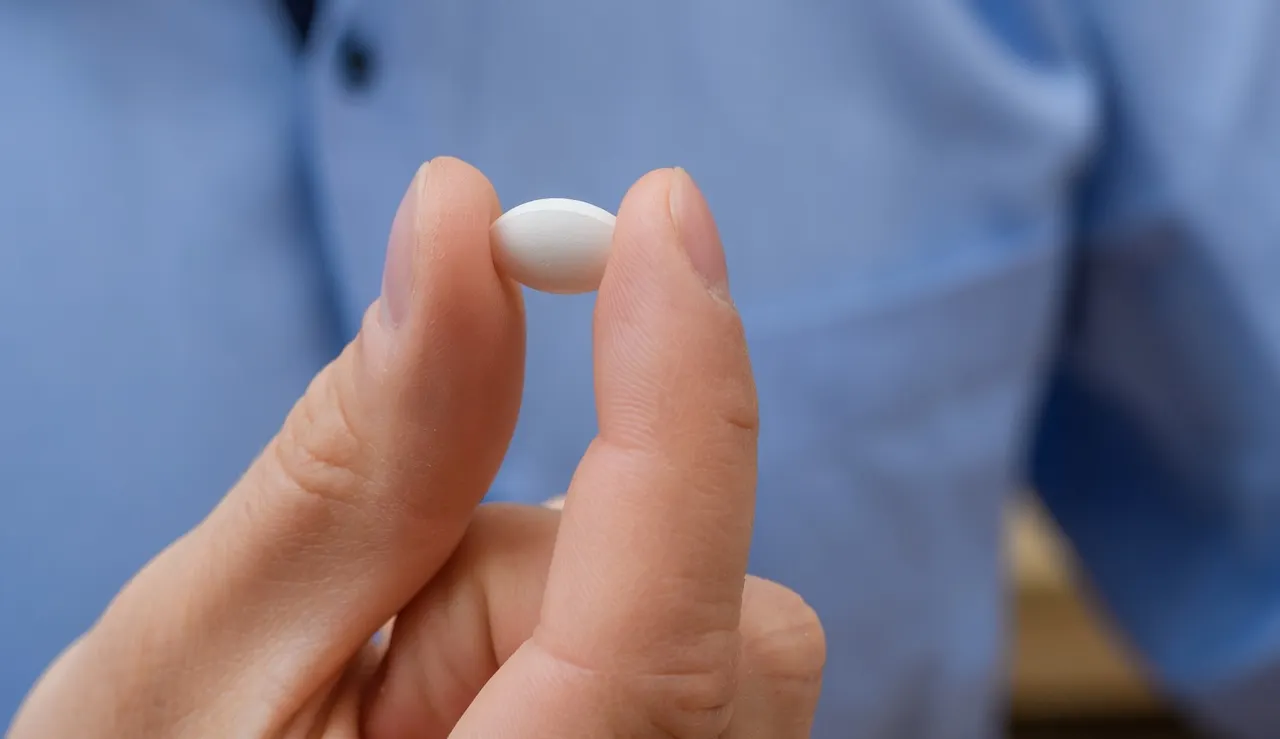
NEWYou can now listen to Fox News articles!
The Trump administration has expressed interest in exploring psychedelics for their potential in treating PTSD and other debilitating mental health issues, various officials have shared.
“The Department shares the goal of ensuring that all Americans — especially our nation’s veterans — have access to safe and effective treatments for conditions such as PTSD, addiction and depression,” a spokesperson for the U.S. Department of Health and Human Services (HHS), run by Sec. Robert J. Kennedy Jr., said in a statement provided to Fox News Digital.
“Secretary Kennedy is committed to applying rigorous, evidence-based science to research efforts aimed at addressing these serious health challenges.”
FDA APPROVES FIRST AI TOOL TO PREDICT BREAST CANCER RISK
In recent years, researchers have been actively investigating the potential of psychedelics, such as MDMA and psilocybin (“magic mushrooms”) to treat mental health disorders.
MDMA is not approved for clinical use by the U.S. Food and Drug Administration (FDA), but can be studied in clinical settings.
Psychedelics research has gained support from the Trump administration for treating PTSD and mental health conditions. (iStock)
Psilocybin is listed as a Schedule I substance under the Controlled Substances Act, which means it has “a high potential for abuse, [is not] currently accepted for medical use in treatment in the United States, and [has] a lack of accepted safety for use under medical supervision.”
Psilocybin-assisted therapy, however, is legal in Oregon, Colorado and New Mexico.
‘Showing promise’
Psychedelic medicines are “showing real promise,” according to Dr. Luke Twelves, general practitioner and vice president of medical for Lindus Health in London.
Clinical trials have found such treatments safe and effective for patients battling serious mental health issues, according to Twelves.
COMMON SUPPLEMENTS AND MEDICATIONS COULD CAUSE LIVER DAMAGE, STUDIES SHOW
“Take psilocybin, for example — it’s demonstrating remarkable results for severe depression that hasn’t responded to other medications,” he told Fox News Digital. “MDMA is showing similar breakthroughs for PTSD treatment.”
Clinical trials are also investigating how psychedelics could help with end-of-life anxiety, addiction, eating disorders, chronic pain and OCD, he added.
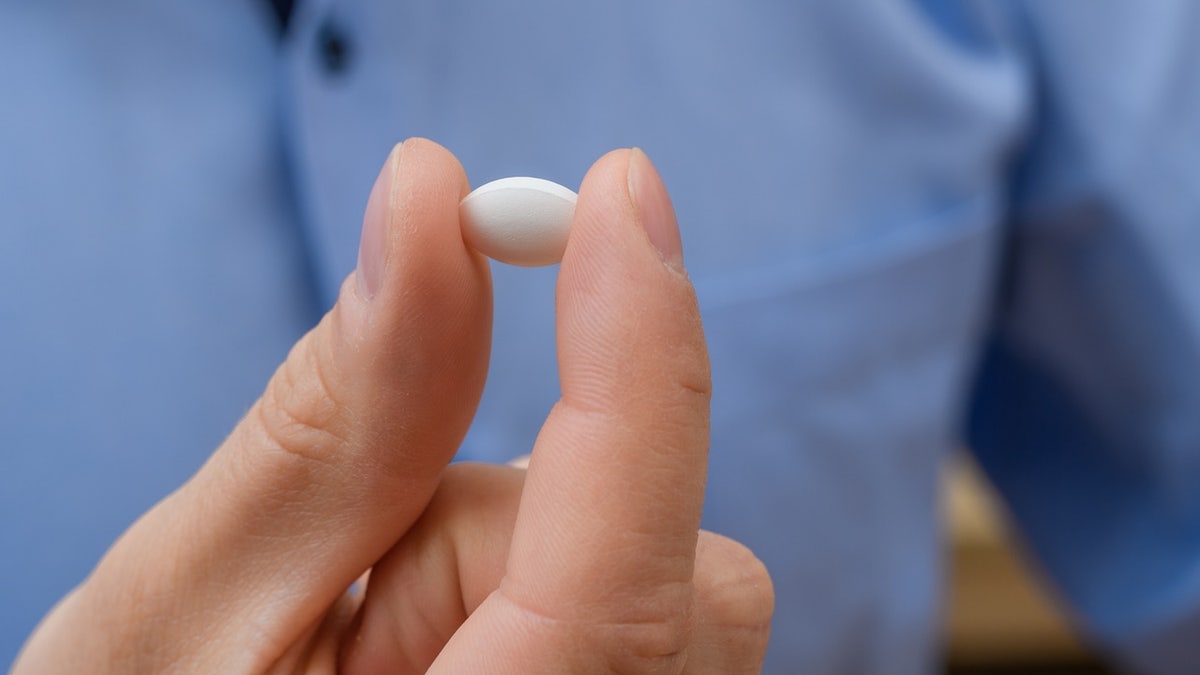
In recent years, researchers have been actively investigating the potential of psychedelics, such as MDMA and psilocybin to treat mental health disorders. (iStock)
Researchers have faced challenges in terms of regulatory hurdles and proper placebo controls, Twelves said.
“Given that these treatments could transform [the] lives of people suffering from conditions where nothing else has worked effectively, it’s crucial that we complete this research properly,” he said. “The goal is to bring safe, proven psychedelic therapies to the patients who need them most.”
Potential for veterans
At President Trump’s May 1 cabinet meeting, Department of Veterans Affairs Secretary Doug Collins said that “we’re opening up the possibility of psychedelic treatment.”
Retired Army Sergeant Jonathan Lubecki recently told Fox News’ Alexandria Hoff that MDMA stopped his PTSD while he was participating in a clinical trial.

The VA is now opening up to the possibility of psychedelic treatment to promote the health of veterans. (iStock)
“[I] took my first dose of MDMA. I’ve only taken it three times as part of the clinical trial, haven’t taken it since, and haven’t found the need to take it since, because I haven’t had PTSD,” he said.
Peter Kasperowicz, Department of Veterans Affairs press secretary, told Fox News Digital the department is safely exploring all avenues that promote the health of veterans.
FALLUJAH VET TURNS MEDAL OF HEROISM INTO A HEALING MISSION FOR FELLOW WARRIORS WITH SERVICE DOGS PROGRAM
“Preliminary findings have produced positive results on psychedelic-assisted therapies for treating mental health conditions,” he said.
The VA is currently running 11 clinical trials in various phases, with a total of some 800 veterans expected to participate.
“The goal of these trials is to determine whether compounds such as MDMA and psilocybin can treat veterans with post-traumatic stress disorder, treatment-resistant depressive disorder, major depressive disorder and potentially other mental health conditions,” said Kasperowicz.

Psilocybin is a Schedule I drug under the Controlled Substances Act, but psilocybin-assisted therapy is legal in Oregon, Colorado and New Mexico. (iStock)
An MDMA study published in the Jan. 2025 issue of The American Journal of Psychiatry found that the substance is “unlike classical psychedelics.”
The study noted, “MDMA allows the individual to maintain intact ego functioning and a greater degree of cognitive and perceptual lucidity while still experiencing a prosocial altered state of consciousness that facilitates deeply emotional therapeutic breakthroughs.”
CLICK HERE TO SIGN UP FOR OUR HEALTH NEWSLETTER
The researchers concluded that MDMA showed “enhanced levels of trust, empathy, self-compassion and a ‘window of tolerance’” that traditional psychotherapy lacks.

The VA currently has 11 psychedelic clinical trials in various phases. (iStock)
Doug Drysdale, CEO of the Canadian pharmaceutical company Cybin, told Fox News Digital that “the time is now to address the mental health crisis.”
He said it is “gratifying” that administration officials value the potential benefits of looking into alternative mental health treatments.
“The time is now to address the mental health crisis.”
Cybin is currently in phase 3 of a study of CYB003, a type of psilocybin that has been granted breakthrough therapy designation by the FDA as an additional treatment for major depressive disorder (MDD).
“In Cybin’s completed Phase 2 MDD study, long-term efficacy results showed that 71% of participants were in remission from depression, and 100% of participants responded to treatment at 12 months after just two 16 mg doses of CYB003,” said Drysdale.
Risks and cautions
Dr. Marc Siegel, clinical professor of medicine at NYU Langone Medical Center and Fox News’ senior medical analyst, previously interviewed two of the country’s top researchers on psychedelics — Dr. Rachel Yehuda, founder and director of the Center for Psychedelic Psychotherapy and Trauma Research at Mt. Sinai in New York, and Dr. Charles Marmar, director of the PTSD research program at NYU Langone.
“There is a huge downside in terms of unregulated recreational uses.”
“They agree there is therapeutic potential if very carefully studied under very strict medical guidance, but there is a huge downside in terms of unregulated recreational uses,” Siegel told Fox News Digital at the time.
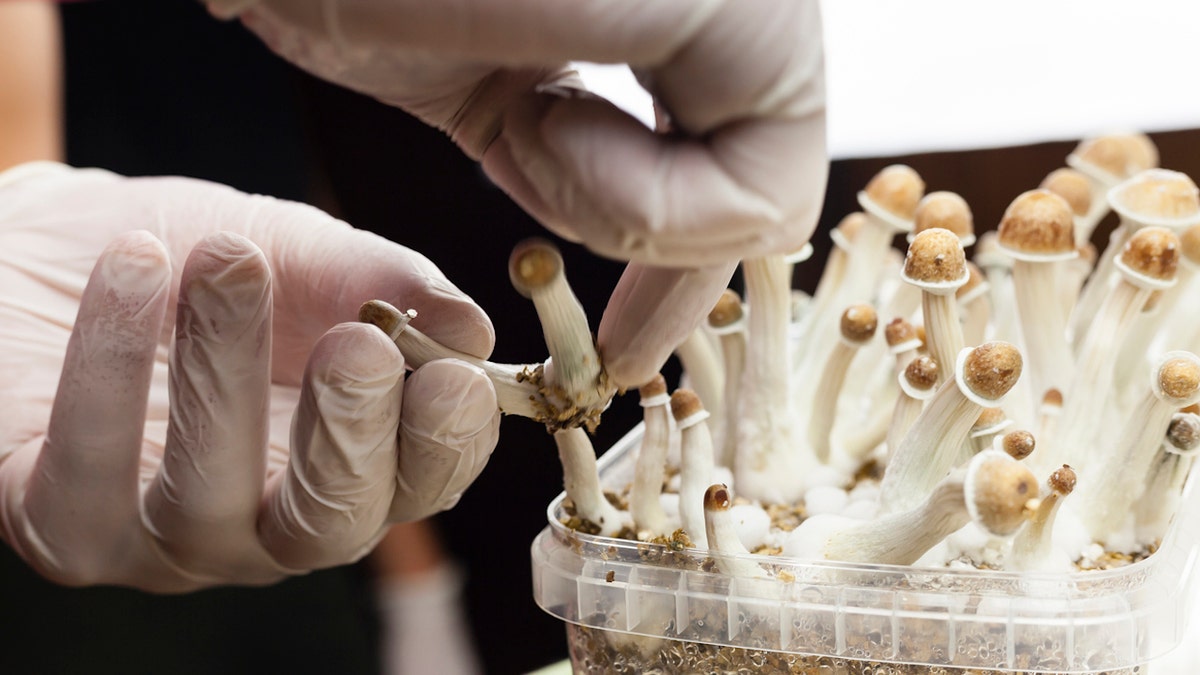
Experts emphasize the importance of administering psychedelics in a safe setting when treating mental health conditions. (iStock)
“Both doctors see likely therapeutic value to psychedelics if carefully managed by medical experts,” Siegel added.
Ryan Moss, chief science officer at Filament Health, a clinical-stage natural psychedelic drug development company in Canada, emphasized it’s important to administer psychedelics in a safe setting when treating mental health conditions.
For more Health articles, visit www.foxnews.com/health
“Psychedelic experiences can sometimes feature anxiety, hallucinations and paranoia,” Moss previously told Fox News Digital. “Some patients using traditional psychedelics have reported experiencing adverse cardiovascular events during clinical trials.”
To mitigate these risks, Moss recommended clinical trial participants receive thorough preparation and monitoring by trained professionals during sessions.
Melissa Rudy and Angelica Stabile, both of Fox News Digital, contributed reporting.
-

 News1 week ago
News1 week agoVideo: Faizan Zaki Wins Spelling Bee
-

 News1 week ago
News1 week agoVideo: Harvard Commencement Speaker Congratulates and Thanks Graduates
-

 Politics1 week ago
Politics1 week agoMichelle Obama facing backlash over claim about women's reproductive health
-

 Technology1 week ago
Technology1 week agoAI could consume more power than Bitcoin by the end of 2025
-

 News1 week ago
News1 week agoPresident Trump pardons rapper NBA YoungBoy in flurry of clemency actions
-

 Technology1 week ago
Technology1 week agoSEC drops Binance lawsuit in yet another gift to crypto
-

 Technology1 week ago
Technology1 week agoOpenAI wants ChatGPT to be a ‘super assistant’ for every part of your life
-

 World1 week ago
World1 week agoTwo killed in Russian attacks on Ukraine before possible talks in Turkiye



